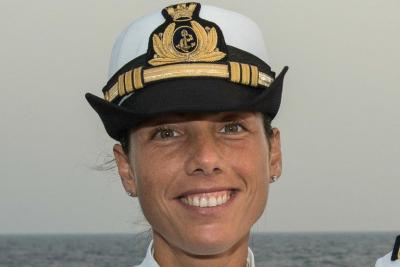'Heroic' captain investigated for migrant deaths

ROME -- Catia Pellegrino, the oft-deemed “heroic” naval captain who works daily to save thousands of migrant lives from the depths of the Mediterranean, is now under investigation in the capital for having arrived four hours late to a rescue mission, meaning hundreds of migrants died due to lack of intervention, judicial sources said Tuesday.
Catia had become a heroic symbol of these rescue missions in Malta and a documentary film ‘Catia’s Choice’ has even been made about her story. However, now she has been called to court to explain the reasons behind her ship’s four-hour delay in reacting to the first call for help for a migrant shipwreck.
This lengthy time gap caused the deaths of 268 people, including 60 children -- although only 26 bodies have been recuperated from the waters so far. This has led Catia, and four other naval officials, to be put on the list of those to be investigated under the charge of negligent manslaughter and failure to assist those in danger.
The Roman prosecutor’s office called in Catia along with the four other naval commanders who were on patrol with her Oct. 3, aboard the ‘Libra.’ They were asked to recount their actions on that day from the moment the first alarm was sounded -- at about 11am -- about the sinking of the migrant fishing boat, of which there is no record in the Maltese Marina's archives. The boat then fully sank at about 6pm, Il Messaggero reports.
One particular naval official is charged with having stolen and retained some documents that are directly linked to this case, and which would help to elucidate important details.
The case was initially opened by the public prosecutor’s office in Agrigento, which passed via Palermo, and was then taken up in Rome, where Catia was called Oct. 11 to explain her version of events.
Meanwhile, in Ferrara’s Goro and Gorino communes, the local inhabitants have put up barricades against the arrival of migrants to Gorino’s hostel, which was all part of the national emergency plan to accommodate migrants around different parts of Italy.
Some of the inhabitants of these communes literally blocked the road, stopping the buses with the migrants aboard from being able to pass. These untimely protests seemed to work to an extent, as now the 11 refugees -- out of whom one was pregnant -- have been split up and relocated to Comacchio, Fiscaglia and Ferrara.
nkd


